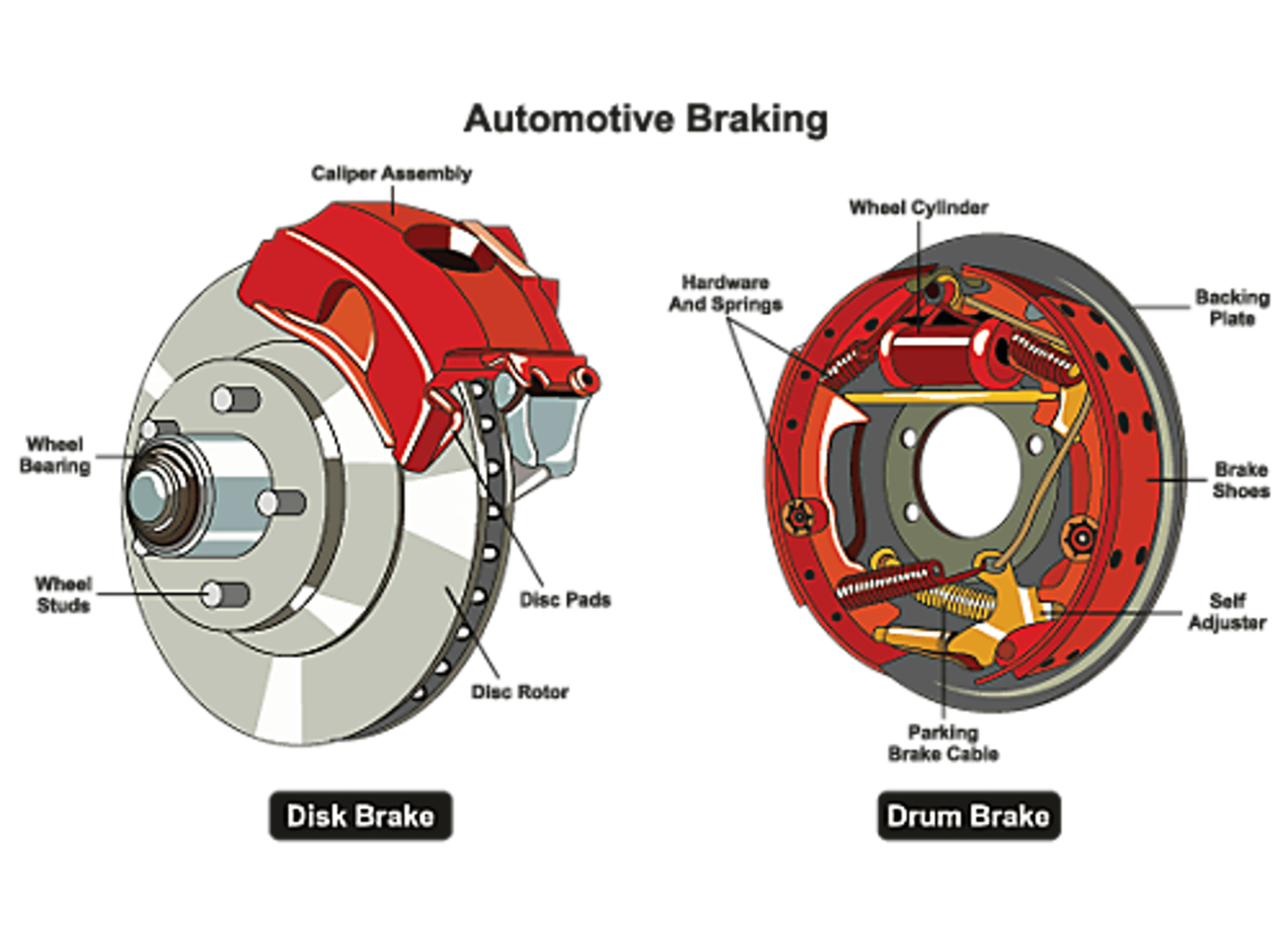NOTICE: We’re currently performing some scheduled updates to improve your experience.
Our website will be back online shortly.

Brake System Repairs
Everything You Need to Know About Car Brake Systems
Your car’s brake system is one of the most critical safety components, keeping you and your passengers protected on the road. From everyday driving to emergency stops, brakes must function flawlessly. Understanding how your brakes work, the signs of wear, and proper maintenance can prevent accidents and costly repairs.
How Car Brake Systems Work
Most vehicles use a hydraulic brake system, which relies on brake fluid to transfer pressure from the brake pedal to the brake pads or shoes. Key components include:
Brake pads and shoes: Press against the rotors or drums to slow the vehicle.
Rotors and drums: Provide the friction surface for braking.
Calipers: Apply pressure to the brake pads.
Brake lines and fluid: Transfer force and maintain hydraulic pressure.
Master cylinder: Converts your pedal pressure into hydraulic pressure.
Signs Your Brakes Need Attention
Recognizing early warning signs can prevent brake failure:
Squeaking or grinding noises: Often indicate worn brake pads.
Soft or spongy brake pedal: May signal air in the brake lines or low fluid.
Pulling to one side: Uneven braking or worn components.
Vibrations when braking: Warped rotors can cause pulsation.
Warning lights: Brake system indicators on the dashboard.
Brake Maintenance and Replacement
Proper maintenance is key to safe driving:
Brake pad replacement: Usually every 30,000–70,000 miles, depending on driving habits.
Brake fluid change: Every 2 years or as recommended by the manufacturer.
Rotor resurfacing or replacement: Needed when rotors are warped or worn.
Regular inspections: Mechanics can check pads, discs, fluid, and lines for wear.
Professional vs DIY Brake Work
While some minor brake tasks can be done at home, professional mechanics provide:
Safety assurance: Proper installation prevents accidents.
Advanced diagnostics: Identify hidden issues like caliper sticking or fluid leaks.
Correct disposal: Old brake fluid and pads are handled safely.
Tips to Extend Brake Life
Avoid hard stops when possible; gentle braking reduces wear.
Keep your braking system clean and free of debris.
Check brake fluid levels regularly.
Have your brakes inspected at least once a year.
Your brakes are your lifeline on the road. Timely maintenance and professional attention ensure they perform optimally, keeping you safe. In Bradford and surrounding areas, our trained mobile mechanics can inspect, repair, and replace your brakes quickly and safely, right at your location.
Services
Copyright SSK MECHANICS LTD © 2025. All rights reserved.
Contact us
SSK Mobile Mechanics brings expert vehicle repair and maintenance directly to you in Bradford, offering hassle-free, on-site automotive care.


Vehicle Service
Brake Pads & Discs
Engine Repairs
Diagnostics
Timing Belts / Chains
Injectors
Wipers
MOT
Brake Pipes
Coolant
Air Conditioning
Water Pumps
Alternators
Spark Plugs
